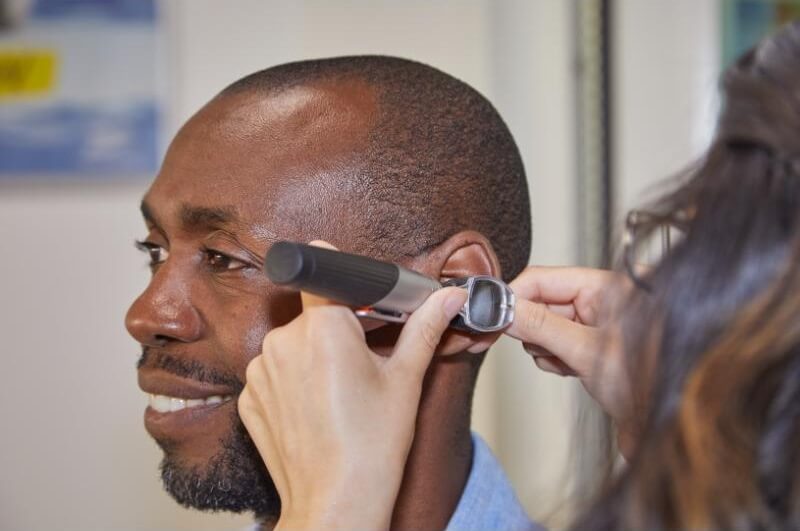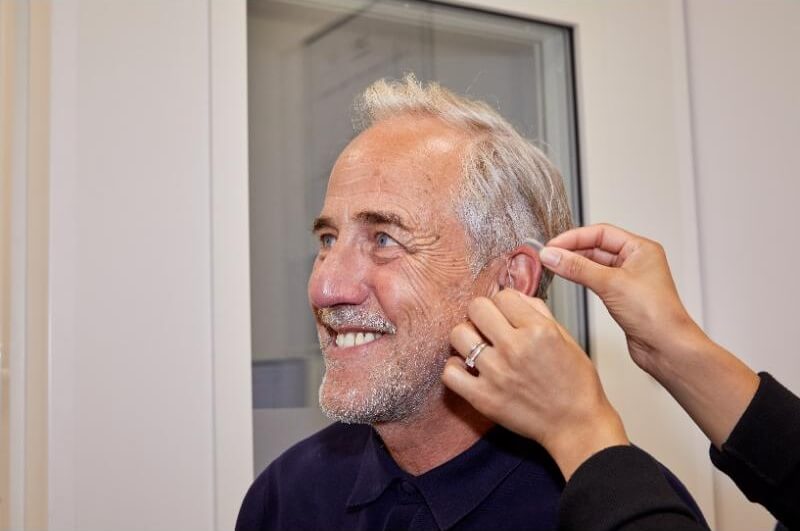What causes tinnitus?
Tinnitus can stem from a number of underlying things, making its origin a complex puzzle to solve.
Below, we look into the diverse causes that contribute to tinnitus:
1. Noise exposure: prolonged exposure to loud noises, such as concerts, industrial machinery, or firearms, can damage the delicate structures of the inner ear and trigger tinnitus.
2. Age-Related hearing loss: as we age, the natural wear and tear on our auditory system can lead to age-related hearing loss, often accompanied by tinnitus.
3. Earwax blockage: earwax build-up can obstruct the ear canal, affecting hearing and potentially causing tinnitus symptoms.
4. Medical conditions: various medical conditions, including high blood pressure, cardiovascular disorders, and temporomandibular joint (TMJ) issues, can contribute to tinnitus.
5. Medications: certain medications, such as non-steroidal anti-inflammatory drugs (NSAIDs), antibiotics, and some antidepressants, may cause tinnitus as a side effect.
6. Ear and sinus infections: infections of the ear or sinuses can disrupt the auditory system and result in temporary or persistent tinnitus.
7. Head and neck injuries: trauma to the head or neck can impact the auditory system and lead to tinnitus.
8. Meniere's disease: this inner ear disorder can cause tinnitus, along with vertigo and hearing loss.
9. Stress and anxiety: high levels of stress or anxiety can aggravate tinnitus or make it more noticeable.
10. Ear bone changes: abnormal bone growth in the middle ear, known as otosclerosis, can contribute to tinnitus.
Does Tinnitus cause hearing loss?
Tinnitus can coexist with hearing loss, often occurring as a symptom of an underlying auditory impairment. However, it's essential to recognise that tinnitus can also exist on its own.
Understanding this distinction will help individuals to address both conditions proactively, seeking tailored management options to enhance their overall auditory well-being and quality of life.
Types of tinnitus
Tinnitus can be categorised into various types based on its characteristics and underlying causes. Here are the different types of tinnitus:
Subjective tinnitus: the most common type, where only the individual experiencing it can hear the sounds.
Objective tinnitus: a rare form where both the affected person and a healthcare provider can hear the sounds, often due to vascular or muscular issues.
Pulsatile tinnitus: characterised by rhythmic or pulsating sounds, typically synchronised with the individual's heartbeat.
Non-pulsatile tinnitus: the more common form, where the sounds are continuous and not related to the heartbeat.
Somatic tinnitus: triggered or modulated by movements of the head, neck, or jaw.
Neurological tinnitus: resulting from a disorder within the nervous system, often associated with a perceived clicking or cracking sound.
Musical tinnitus (musical ear syndrome): involves hearing music or melodies without an external source, often occurring in individuals with hearing loss.
Objective palatal tinnitus: rare and caused by spasms in the muscles near the ear.
Vascular tinnitus: linked to blood flow disturbances, often producing a swooshing or rushing sound.
Tonal tinnitus: characterised by hearing a single pure tone or multiple distinct tones.
These types of tinnitus can vary in how they present themselves. Therefore, a thorough evaluation by a healthcare professional is essential for proper diagnosis and management.














